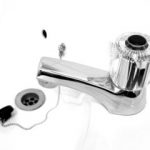
All year round safety
Dangers in the home – can you spot them?
999 Ted has recently moved house and needs your help to identify the possible dangers in the home:
(You can also download this game)
|
|
|
|
On the staircase
|
|
In the bedroom
|
|
On the balcony
|
|
Electrical safety
How does electricity get to your house?
From power stations, wind turbines, solar power, water power, battery power.
Bathroom dangers
- NEVER take plug-in electrical items into the bathroom as these can kill if in contact with water
- NEVER touch electrical things with wet hands as you could get electric shocks and be killed
Bedroom dangers
- ALWAYS get a grown up to change a light bulb
- NEVER leave electrical things on when you are not using them or when you go to bed.
Lounge dangers
- NEVER overload an adaptor as it could cause a fire
- DON’T let leads from electrical items trail across the floor
- NEVER have lit candles on top of electrical items
Kitchen dangers
- Irons can get very hot and can burn; try not to trip over the cable
- DON’T put objects into a microwave/washing machine without the help of a grown-up
- NEVER place cables near or by a cooker
- NEVER stick your fingers or anything inside a toaster
Garden dangers
- If you are in a pool ALWAYS dry yourself off before touching switches or anything electrical
- ONLY GROWN UPS CAN USE ELECTRICAL GARDEN TOOLS. It’s also important that they ALWAYS use a RCD* with all electrical garden tools to protect from electric shocks
*RCD = residual current device. It’s a life-saving device which is designed to prevent you from getting a fatal electric shock if you touch something live, such as a bare wire. It can also provide some protection against electrical fires. Check with your parent/carer that they have one.
Fire safety
Do you want to be a fire inspector for the day?
Then make sure that your house is safe by checking that:
- Smoke alarms are on every level of your home (basement – if available – ground floor, first floor, etc) and they work
- There is an escape route (for example a fire exit if you live in a flat) or a plan in case of a fire
- No electrical equipment is left on at night
- Your little siblings are not playing with matches and lighters
Is your number up?
It is important that your house number is clearly visible from the road by day and night, so that when you, your parent or carer need to call 999 in an emergency, we can find you quickly and easily.
Check with your parent or carer that:
- your house name or number is visible from the road
- there are no trees or bushes blocking the sign
- the outside light, when possible, is switched on
REMEMBER:
Every second counts in an emergency
Road safety
Cycling
How to cycle safely
- Be visible to other road users
Did you know it is illegal and dangerous to cycle after sunset without the correct lights on your bicycle and you may receive a fixed penalty notice? - Check, or get your parent or carer to check, that you have the following:
-
-
- One front light which is white
- One rear light which is red
- One rear reflector which is red
- Two amber reflectors on each pedal
-
- Don’t cycle too close to the kerb
- Protect yourself with a helmet
- Make eye contact with drivers
- Make your intentions clear to other road users
- Look behind you before you turn, overtake or stop
- Use arm signals before you turn right or left
- Obey traffic lights and road signs
- Don’t ride on the pavement unless there’s a sign saying that you can
- On busy or narrow roads, don’t cycle next to another person
- When overtaking parked cars, watch out for car doors opening suddenly and allow room to pass safely
- Don’t use headphones while cycling
- Never use a mobile phone while cycling
It’s against the law for cyclists to:
- Cycle through red lights, including lights at pedestrian crossings
- Cycle on pavements, unless there’s a sign showing that the pavement has been converted to a cycle path
- Cycle the wrong way up a one-way street, unless there’s a sign showing that cyclists can do so
- Ride across pedestrian crossings, unless it’s a toucan crossing with a sign saying that cyclists can do so
Walking
- Always let a trusted person know where you are going and if you have a mobile phone, make sure it’s fully charged in case of a fall or other accident
- If icy, don’t go out on your own or with your friends
- Stay away from any frozen rivers, lakes or other larger water areas as the ice is never 100% safe
- Be smart when crossing the road:
- find a safe place to cross
- stop just before you get to the kerb
- look all around for traffic and listen
- if traffic is coming, let it pass
- when it’s safe, go straight across the road
- Don’t cross the road while:
- talking to friends
- listening to music
- making mobile phone calls
- text messaging
- If you cannot cross the road on a safe crossing (zebra, pelican, toucan and puffin) don’t run when crossing as you might trip up and the car in front of you might not be able to brake in time.
Railway safety
Never play on or cross railway tracks/lines! Railway lines are very dangerous places which can kill you because trains can be run by very powerful electricity. Electricity flows through the overhead cables and the rails at all times.
Don’t cross the lines and do not try to test the power of the cables and lines with an object (for example a stick) as the electricity jumps and you will get electrocuted.
If you are playing nearby and are holding a kite or a balloon with a string, look out for over head cables as these will kill you if in contact with the kite.
Trains cannot stop very quickly and they are unable to swerve if there is danger in front.
REMEMBER – BE SMART, BE SAFE! ALWAYS CROSS BY USING A DESIGNATED BRIDGE, SUBWAY OR RAIL CROSSING.








